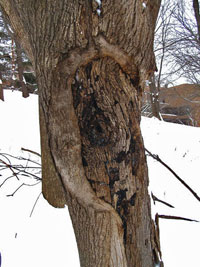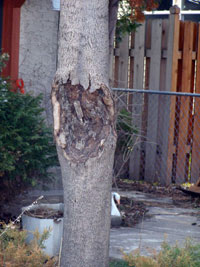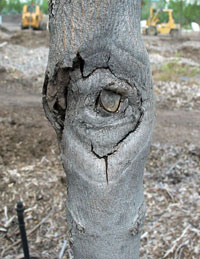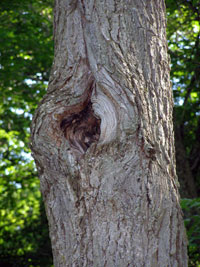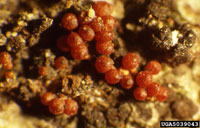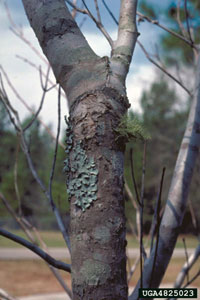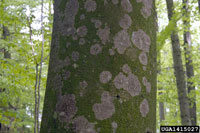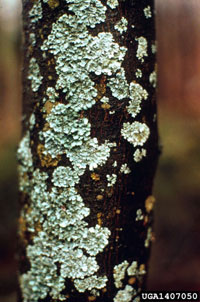Extension > Garden > Diagnose a problem > What's wrong with my plant? > Deciduous Trees > Maple > Irregular to circular discolored patches
Maple > Trunk/Branches > Irregular to circular discolored patches
1 of 3
Eutypella canker
Eutypella parasitica
- White to buff-colored fungal growth may be seen around outer portions of expanding canker if bark is removed
- Young cankers appear as round flattened, bark covered areas on main trunk or larger branch
- Branch stub or other wound is often visible at center of the canker
- As cankers age, the flattened surface turns black and bark begins to fall off revealing decaying wood in a target shape pattern below
- Old cankers may develop a thick ring of wound wood surrounding the canker, making that area wider than the trunk above or below
- Occurs on all maples but common on sugar maples in forest settings and Norway maples in urban settings
- More information on Eutypella canker
2 of 3
Perennial Nectria canker
Neonectria ditissima
- Red to reddish orange raised cushion like bumps can occasionally be seen on the edge of the canker
- Sunken round to oval cankers with target shaped ridges of barkless wood on large branches or the main trunk
- Small dark sunken area on twigs that can girdle and kill the branch
- More information on Perennial nectria canker
3 of 3
Lichens
Several species
- Colorful patches on the bark of trunk and/or branches
- Can be wrinkled, in scalloped sheets, lace-like pads, bushy tufts, paint-like spots or splashes
- Forms can be flat against the bark surface or raised in leaf-like lobes, finger-like or hairy projections
- Colors may be shades of gray, green, blue, yellow, orange, or red
- Lichens do not harm trees or shrubs and no management is necessary
- More information on Lichens



